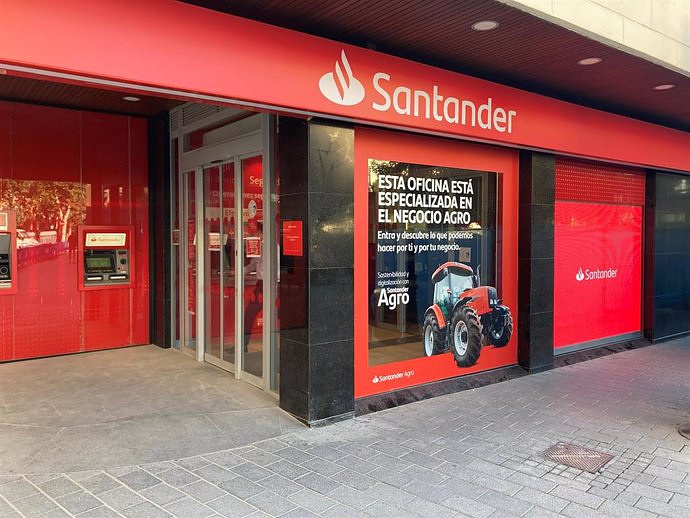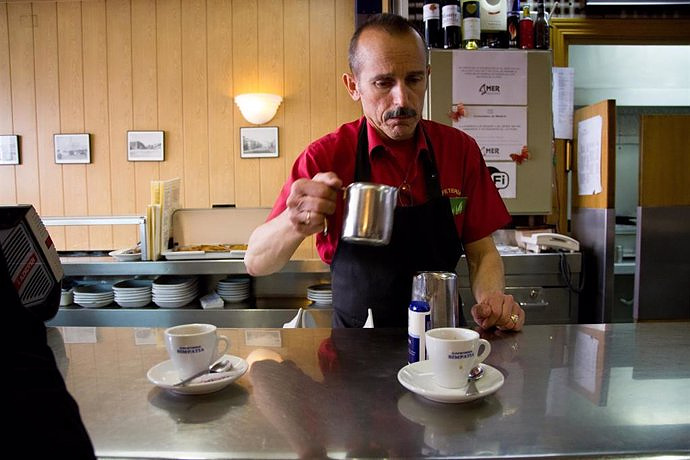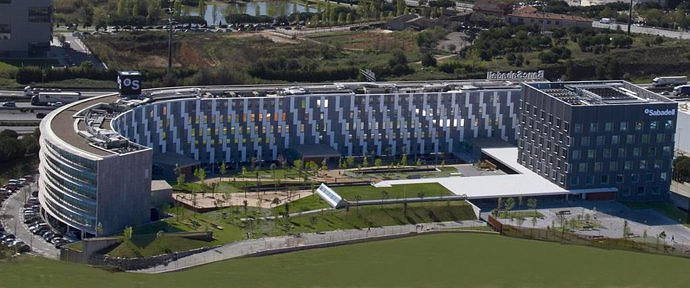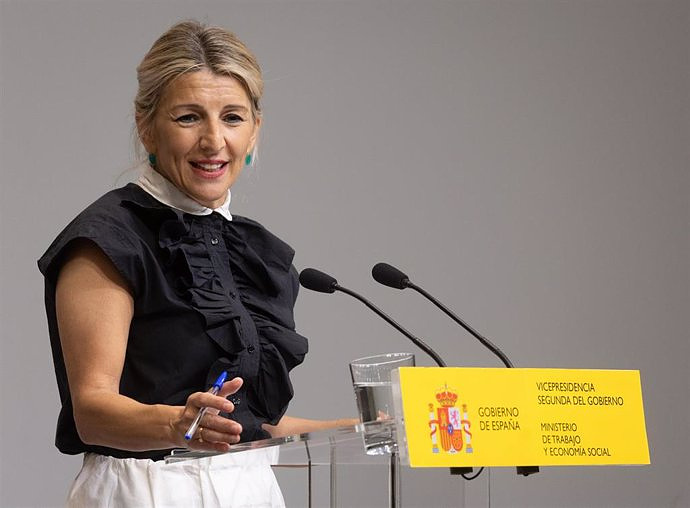He says that what is being discussed is whether there is an invasion of powers and stresses that in Madrid there is freedom of schedules, unlike other Autonomous Communities.
He believes that the Government has put "simply a band-aid" with measures such as turning off shop windows, but without going into the "major issues"
SANTIAGO, 20 Ago. (EUROPA PRESS) -
The leader of the PP, Alberto Núñez Feijóo, does not plan to appeal the energy saving decree approved by the Government of Pedro Sánchez but endorses that the president of the Community of Madrid will take that plan to the Constitutional Court for "invasion" of powers regional At this point, he has warned the chief executive that he "is deeply mistaken in his animosity" towards Isabel Díaz Ayuso.
"It is that we understand that it is not up to us to do it. Here what I understand is being discussed is an invasion of regional competence. We are not talking about a national policy, a law that affects all citizens equally," Feijóo declared when being expressly asked if the national PP will present an appeal before the Constitutional Court as Ayuso is going to do.
In an interview granted to Europa Press in Santiago de Compostela, the leader of the opposition has stressed that what needs to be seen is whether or not there is "competence invasion". In his opinion, that "is the question and that corresponds to the autonomous communities."
As for whether the permanent confrontation between Sánchez and Ayuso benefits the PP, after the forcefulness that the Madrid president has expressed against the energy decree, Feijóo has responded that the one who "destroys" is the PSOE in Madrid, which has become " third political force" in the region.
Thus, he stressed that "today what is being discussed is whether or not the PP in Madrid would obtain an absolute majority in the regional elections." Therefore, he has continued, "the balance is that the PSOE in Madrid has become third force and the Madrid PP, if there were elections this Sunday, would have an absolute majority." "I think that President Sánchez is profoundly mistaken in his animosity towards the regional government in Madrid," he warned.
Feijóo has blamed the Government for its lack of dialogue with autonomies and sectors when the energy saving plan was "an easy thing to talk about and agree on", based on two pillars: "obligations that the public administration must assume" and "recommendations " that should be raised with the citizens, accompanied by "a specific energy policy to save Spanish industry this winter".
He recalled that he himself proposed measures and announced them last July at a PP event in Alicante because he had noticed that the car parks at airports "were still on during the day." Shortly after, he has continued, the EU transferred to the member countries the objective of lowering energy consumption by 15%, a request that the Government of PSOE and Podemos opposed.
However, he pointed out that in the end Spain has become the "only country where merchants are forced to turn off their shop windows at ten o'clock at night throughout the country." "In addition, we make a decree that we had denied, we publish it without the knowledge of the parties and when it comes into force, we call the CCAA, which are the ones that have to apply it. And when the communities meet, we do not accept a single allegation Is there one more example of authoritarianism than this?" he asked.
Also, the president of the PP has highlighted that, in the structure of cost and energy consumption, "the big thing" is not "the windows of Spanish stores" but whether the country can produce tons of steel or aluminum.
"We are importing all the primary aluminum that Spain needs. This is the problem that we have without solving. And what we have put is simply a band-aid, telling the merchants that they have to close due to legal imperative," he denounced, to highlight that the The government has chosen to "impose" measures and "hyperact" but is not going to "the cool issues."
In addition, he has wondered what they do with the freedom of schedule that exists in communities like Madrid. "How do we tell a store that can open until one in the morning that it has to close its window at ten at night? But does this really make any sense? Why does a small shopkeeper in Valencia have to turn off its shop window at ten o'clock and the logo of the PSOE or PP headquarters can be maintained? Because some are logos and others are shop windows and the decree allows logos but not shop windows?
When asked then if the PP will vote against it in Congress when this week the validation of the energy decree is debated, Feijóo has not clarified what will be the meaning of the vote of his parliamentary group and has stressed that "they do not even know what the contents are "because "as always" there can be "more things in that royal decree".
"The problem is that the will of the PSOE is not to agree on anything because its government and parliamentary coalition strategy is not to approve anything to the PP", he indicated, to ensure that, despite this attitude of wanting to "corner" his party, will continue to make "useful" proposals to citizens.
Expressly asked then if the PP is not going to take the energy decree to the TC, he has insisted that "it will be up to the autonomous communities to make the decision" and has recalled that he himself, when he was president of the Xunta, presented appeals of unconstitutionality against the Government of Spain without the party doing it because its "obligation" was to manage the constitutional powers granted by the Statute of Autonomy.
"This falls under the regional powers. Is it compatible to close the shop windows at ten at night with the freedom of schedules? There are two contradictory facts. Not even the decree saves those singularities. Is it compatible to force a CCAA to adopt a series of measures without first presenting a process of allegations? With this, it will be up to the Autonomous Communities to make the decision", he added.
Feijóo explained that the party has indeed filed an appeal for unconstitutionality when "a part of Spain does not apply the law" as, in his opinion, has happened with the ruling on 25% of Castilian in Catalonia. "This affects the rights and freedoms of all Spaniards, both those who live in Catalonia and those who have the right to go and live in Catalonia," he said.
In the same way, he has indicated that the PP has also taken the Education Law of the Government of Pedro Sánchez to the TC because "it affects all Spaniards", but in the case of the energy plan there may be "specific invasions of competence" and that " each CCAA will study it".
"It is not the same freedom of schedules that there is in Madrid that there is in other Autonomous Communities, where there is no freedom of schedules. Therefore, there is no contradiction. We are in an autonomous State where the Autonomous Communities can present appeals of unconstitutionality, the same than 50 deputies in Congress", he settled.

 Exploring Cardano: Inner Workings and Advantages of this Cryptocurrency
Exploring Cardano: Inner Workings and Advantages of this Cryptocurrency Seville.- Economy.- Innova.- STSA inaugurates its new painting and sealing hangar in San Pablo, for 18 million
Seville.- Economy.- Innova.- STSA inaugurates its new painting and sealing hangar in San Pablo, for 18 million Innova.- More than 300 volunteers join the Andalucía Compromiso Digital network in one month to facilitate access to ICT
Innova.- More than 300 volunteers join the Andalucía Compromiso Digital network in one month to facilitate access to ICT Innova.-AMP.- Ayesa acquires 51% of Sadiel, which will create new technological engineering products and expand markets
Innova.-AMP.- Ayesa acquires 51% of Sadiel, which will create new technological engineering products and expand markets The Prado will exhibit Caravaggio's 'Ecce Homo' from May 28 after a temporary loan agreement with Conalghi
The Prado will exhibit Caravaggio's 'Ecce Homo' from May 28 after a temporary loan agreement with Conalghi The judge officiates the UCO of the Civil Guard in the case against Begoña Gómez for alleged influence peddling
The judge officiates the UCO of the Civil Guard in the case against Begoña Gómez for alleged influence peddling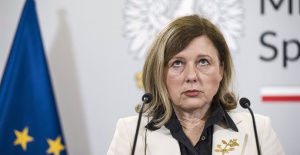 Brussels sees no more risk for the rule of law in Poland and is preparing to close the sanctioning file
Brussels sees no more risk for the rule of law in Poland and is preparing to close the sanctioning file The PP calls to mobilize on May 26 against the amnesty, the "hoaxes" and the "suspicion of corruption" of the Government
The PP calls to mobilize on May 26 against the amnesty, the "hoaxes" and the "suspicion of corruption" of the Government How Blockchain in being used to shape the future
How Blockchain in being used to shape the future Not just BTC and ETH: Here Are Some More Interesting Coins Worth Focusing on
Not just BTC and ETH: Here Are Some More Interesting Coins Worth Focusing on UMH researchers are working on a high-quality apricot crop that requires less irrigation water
UMH researchers are working on a high-quality apricot crop that requires less irrigation water The UPV develops an application to improve the quality of life of patients with glioblastoma
The UPV develops an application to improve the quality of life of patients with glioblastoma A sensor system obtains the fingerprint of essential oils and detects if they have been adulterated
A sensor system obtains the fingerprint of essential oils and detects if they have been adulterated Faraday UPV presents the 'Origin' rocket to exceed 10 km of flight: "It is the beginning of the journey to space"
Faraday UPV presents the 'Origin' rocket to exceed 10 km of flight: "It is the beginning of the journey to space" A million people demonstrate in France against Macron's pension reform
A million people demonstrate in France against Macron's pension reform Russia launches several missiles against "critical infrastructure" in the city of Zaporizhia
Russia launches several missiles against "critical infrastructure" in the city of Zaporizhia A "procession" remembers the dead of the Calabria shipwreck as bodies continue to wash up on the shore
A "procession" remembers the dead of the Calabria shipwreck as bodies continue to wash up on the shore Prison sentences handed down for three prominent Hong Kong pro-democracy activists
Prison sentences handed down for three prominent Hong Kong pro-democracy activists ETH continues to leave trading platforms, Ethereum balance on exchanges lowest in 3 years
ETH continues to leave trading platforms, Ethereum balance on exchanges lowest in 3 years Investors invest $450 million in Consensys, Ethereum incubator now valued at $7 billion
Investors invest $450 million in Consensys, Ethereum incubator now valued at $7 billion Alchemy Integrates Ethereum L2 Product Starknet to Enhance Web3 Scalability at a Price 100x Lower Than L1 Fees
Alchemy Integrates Ethereum L2 Product Starknet to Enhance Web3 Scalability at a Price 100x Lower Than L1 Fees Mining Report: Bitcoin's Electricity Consumption Declines by 25% in Q1 2022
Mining Report: Bitcoin's Electricity Consumption Declines by 25% in Q1 2022 Oil-to-Bitcoin Mining Firm Crusoe Energy Systems Raised $505 Million
Oil-to-Bitcoin Mining Firm Crusoe Energy Systems Raised $505 Million Microbt reveals the latest Bitcoin mining rigs -- Machines produce up to 126 TH/s with custom 5nm chip design
Microbt reveals the latest Bitcoin mining rigs -- Machines produce up to 126 TH/s with custom 5nm chip design Bitcoin's Mining Difficulty Hits a Lifetime High, With More Than 90% of BTC Supply Issued
Bitcoin's Mining Difficulty Hits a Lifetime High, With More Than 90% of BTC Supply Issued The Biggest Movers are Near, EOS, and RUNE during Friday's Selloff
The Biggest Movers are Near, EOS, and RUNE during Friday's Selloff Global Markets Spooked by a Hawkish Fed and Covid, Stocks and Crypto Gain After Musk Buys Twitter
Global Markets Spooked by a Hawkish Fed and Covid, Stocks and Crypto Gain After Musk Buys Twitter Bitso to offset carbon emissions from the Trading Platform's ERC20, ETH, and BTC Transactions
Bitso to offset carbon emissions from the Trading Platform's ERC20, ETH, and BTC Transactions Draftkings Announces 2022 College Hoops NFT Selection for March Madness
Draftkings Announces 2022 College Hoops NFT Selection for March Madness


